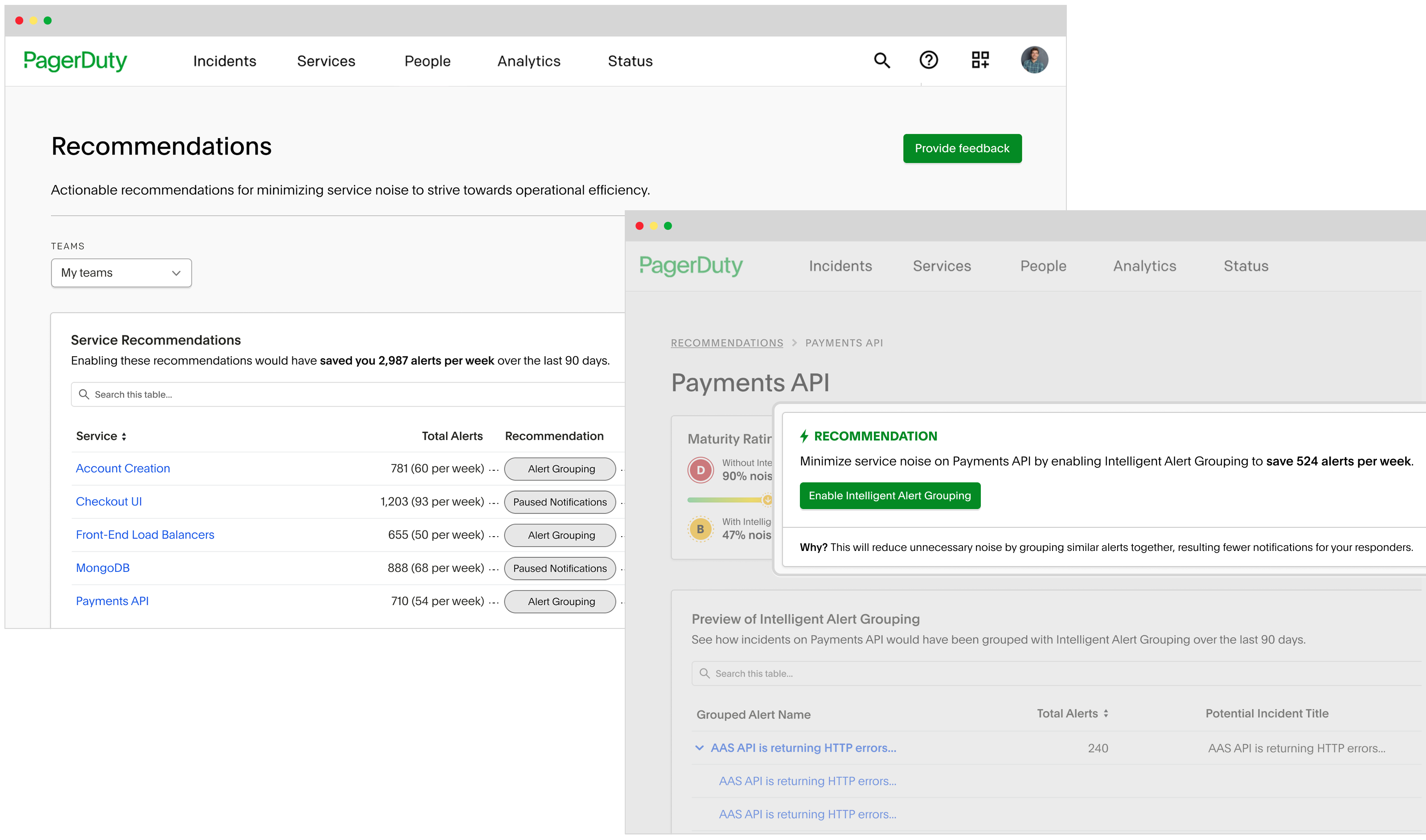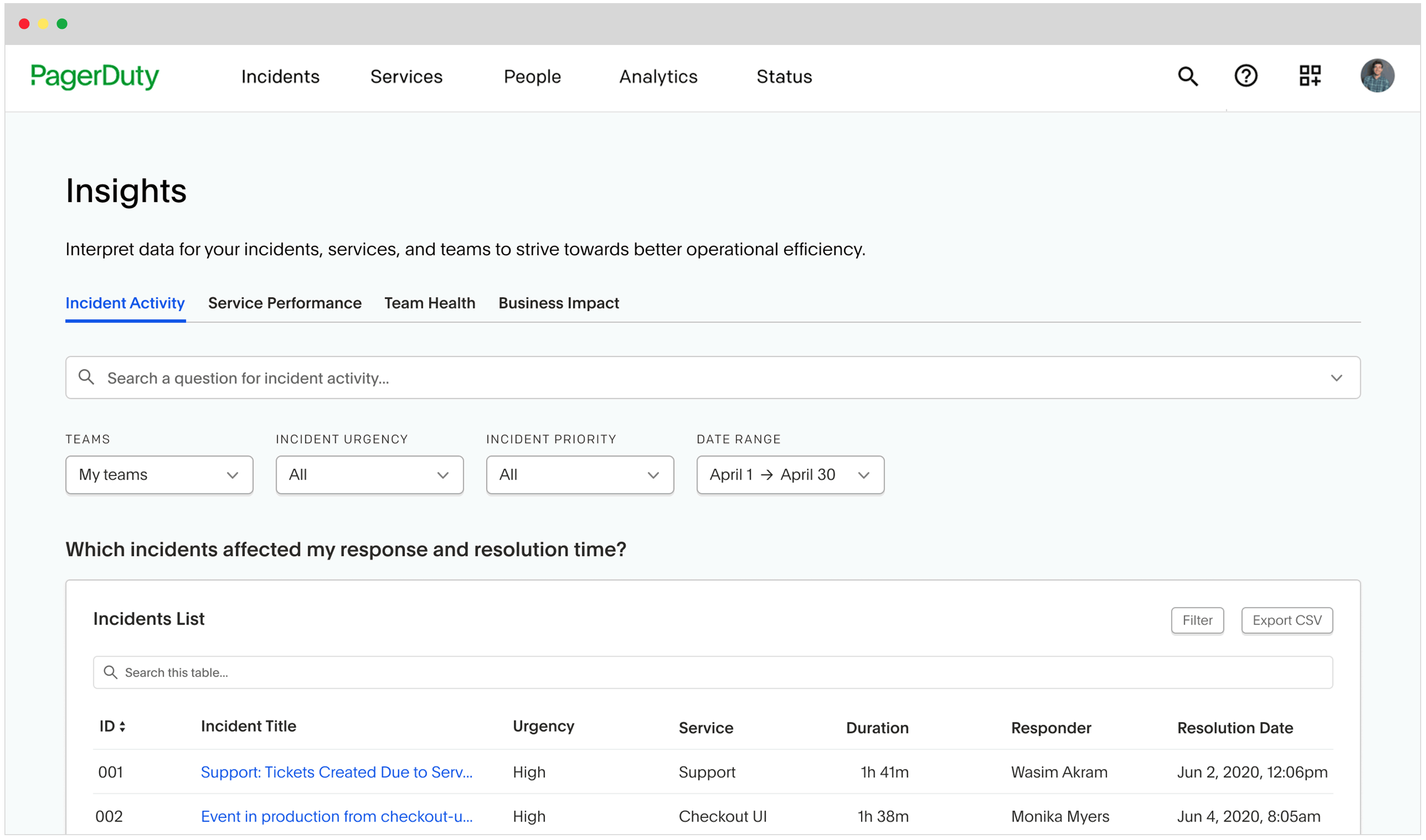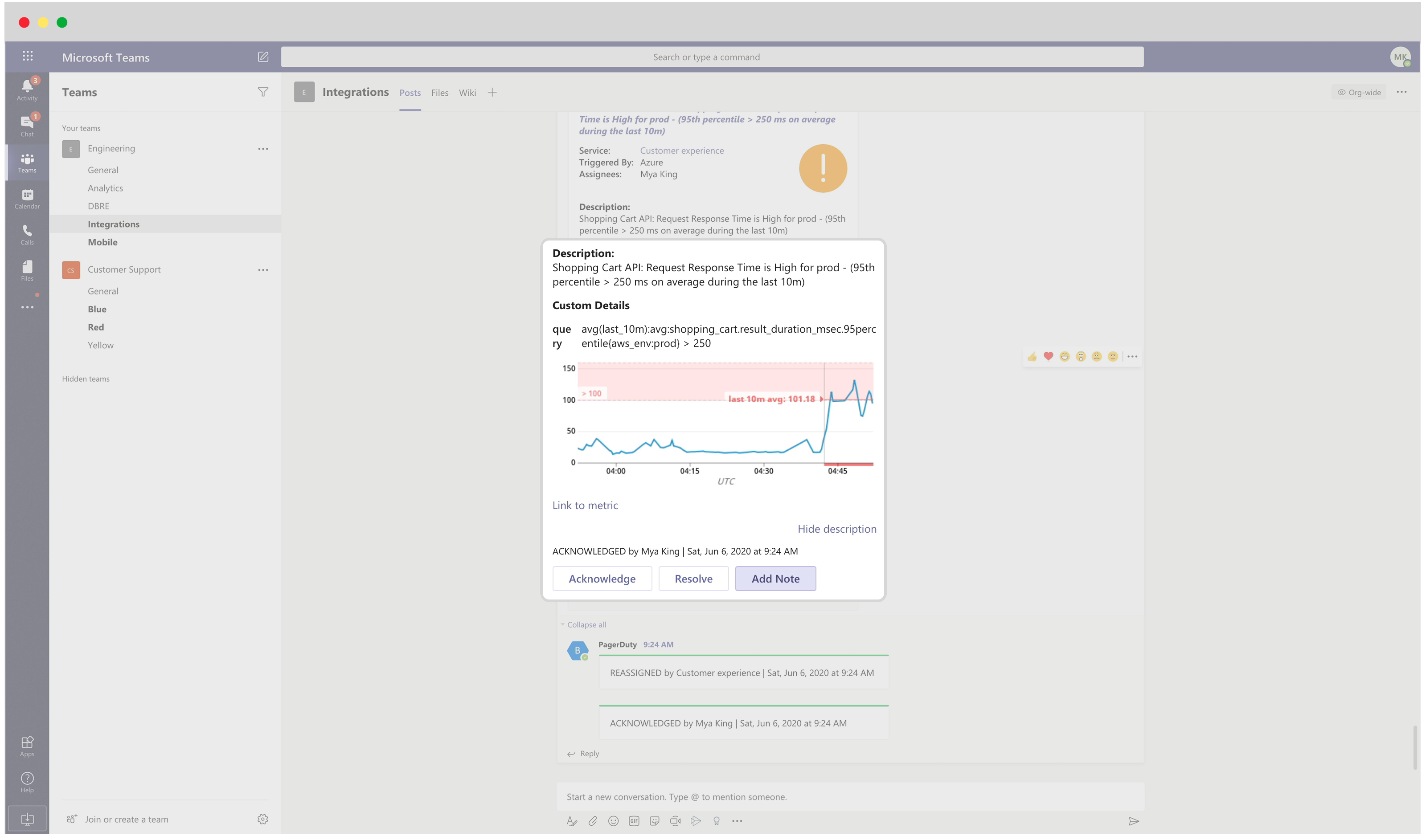 CLOUD
CLOUD
 CLOUD
CLOUD
 CLOUD
CLOUD
Incident response platform provider PagerDuty Inc. said today it’s adding new machine learning and automation capabilities to its digital operations management platform in what it calls its biggest set of upgrades in years.
The updates will enable customers to accelerate their digital transformation initiatives by proactively preventing service interruptions and reducing the time it takes to solve issues, the company said. PagerDuty serves enterprises with a cloud-based platform that’s used to alert developers and engineers to any technical issues with their applications and infrastructure platforms, and to troubleshoot those issues as quickly as possible.
The company also announced an entirely new product for customer service teams that enables agents to better coordinate with information technology teams in real time. The new platform will help companies to protect their brand reputation by resolving issues faster while keeping their customers informed of any progress, it said.
Not least, PagerDuty announced separately today that it will spend about $100 million to acquire Rundeck Inc., the maker of a software tool for troubleshooting technical issues in information technology systems.
Jonathan Rende, senior vice president of products and marketing at PagerDuty, told SiliconANGLE that the update to PagerDuty’s Digital Ops platform is timely, since its customer customers have seen a big rise in the number of interruptions to their platforms as a result of increased traffic. That can be attributed to the COVID-19 pandemic and the shift to remote work, he said.
“We’ve seen everyone jump in with both feet when it comes to their digital business,” Rende said. “[But] we’re seeing more issues popping up.”
As a result, Rende said, PagerDuty’s customers want to become more responsive to issues when they do crop up. To that end, the latest release adds machine learning and automation tools that will provide more advanced insights and analytics that can help customers take a more proactive approach to their digital operations.
For example, the new noise reduction recommendation capabilities (below) in PagerDuty’s Event Intelligence tool helps to identify the noisiest services and provide tips on how to reduce that noise, so teams can focus on the most important incidents that need attention. The release also adds new change impact mapping tools that work by linking any changes in a customer’s software deployment pipeline with incidents that occur later, so teams can easily find and resolve the root cause of those issues.

Another new addition is the dynamic service dependencies in the PagerDuty Service Directory. That makes it possible to dynamically identify dependencies between people, incidents and services in real-time, and then apply machine learning to keep the service directory up to date.
Meanwhile, PagerDuty has added more flexible automation controls that help to ensure a human remains in control at all times by pausing incident notifications. That gives systems a chance to autoremediate before a human responder steps in, the company said.
The new release also delivers more advanced insights and analytics capabilities, including a new Analytics Lab (below) that curates important queries from teams to provide them with an easy-to-use Q&A user experience. That enables technical and business leaders alike to extract insights from PagerDuty’s deep dataset, the company said. In addition, PagerDuty has created a new Analytics Maturity Model helps users to gauge where their business is in its digital journey and provides recommendations on how teams can improve their practices.

“DevOps is moving to digital ops,” Rende said. “These folks have to get from being just responsive, which is the DevOps method, to being proactive using machine learning.”
To help teams become more proactive, PagerDuty is integrating its platform with the popular communication tool Zoom. That enables staff to instantly initiative a remote meeting from within PagerDuty in a single click, making it possible to setup meetings to discuss issues and how to resolve them in an instant.
PagerDuty is also extending its existing integration with Microsoft Teams (below) to include Meetings with Extensible Points. That allows users to launch a Teams Meeting from within PagerDuty and use much of its platform’s functionality from within the Teams interface.

As for the new PagerDuty for Customer Service solution, Rende said it can integrate with existing customer relationship management systems such as Salesforce and Zendesk, and will prove to be critical for customer experiences.
Customer service agents will be able to initiate resolution processes proactively and automatically to resolve customer problems, while collaborating with DevOps and ITOps teams so they can simultaneously keep customers informed. In addition, the new product can also help to automate the transition of agents from on-duty to on-call, reducing the need for staffing during off-hour shifts.
Rende said PagerDuty is effectively becoming a central nervous system for organizations as they enter the new digital world.
“We not only engage all these different teams, but we’re orchestrating the work,” Rende said. “It’s not just about engaging, it’s about orchestrating and doing the work.”
With reporting from Robert Hof
Support our mission to keep content open and free by engaging with theCUBE community. Join theCUBE’s Alumni Trust Network, where technology leaders connect, share intelligence and create opportunities.
Founded by tech visionaries John Furrier and Dave Vellante, SiliconANGLE Media has built a dynamic ecosystem of industry-leading digital media brands that reach 15+ million elite tech professionals. Our new proprietary theCUBE AI Video Cloud is breaking ground in audience interaction, leveraging theCUBEai.com neural network to help technology companies make data-driven decisions and stay at the forefront of industry conversations.